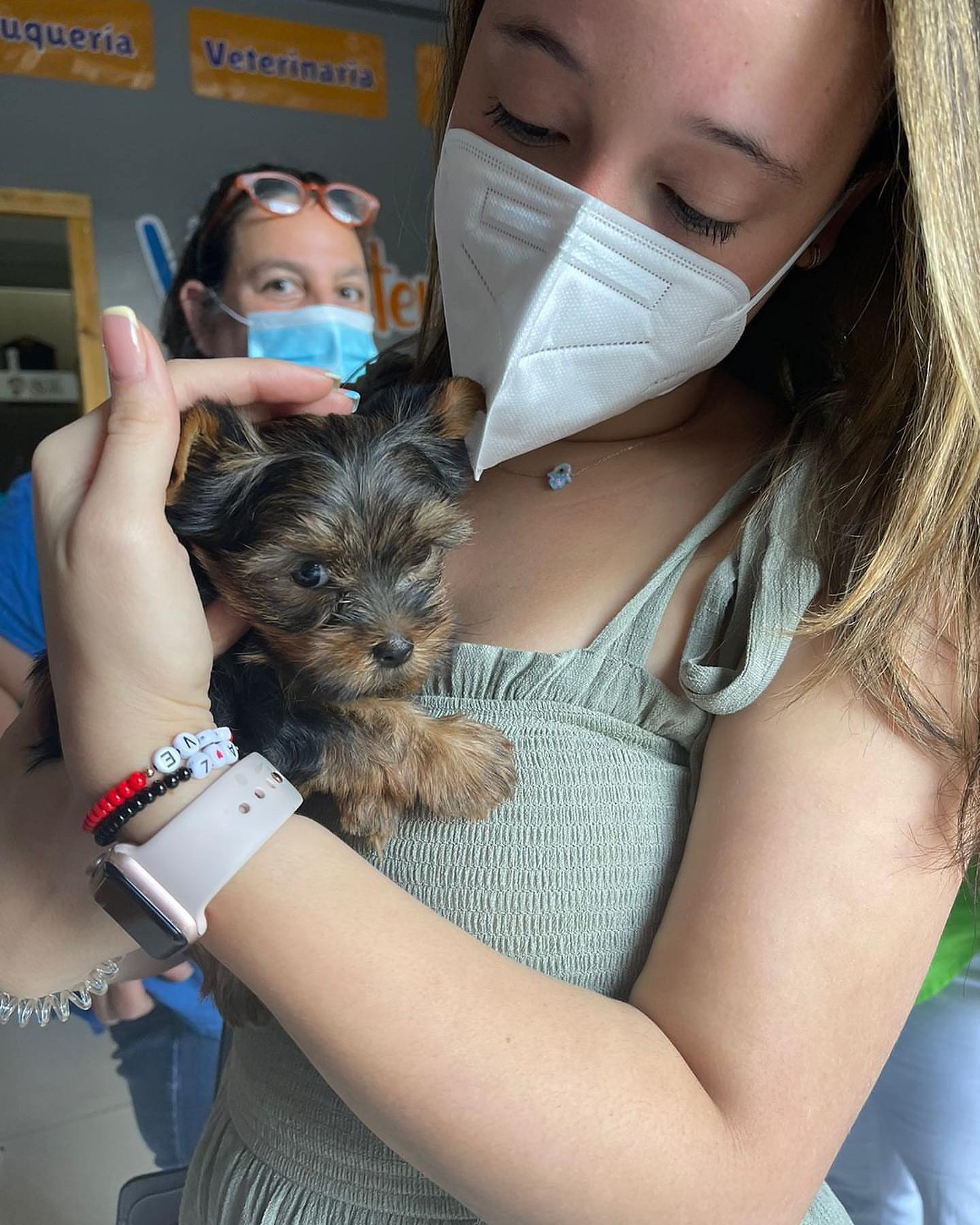
3
May10 Startups That Are Set To Revolutionize The Yorkie Puppies In Distress Industry For The Better
Understanding and Addressing Yorkie Puppies in Distress: A Comprehensive Guide
Bruno mini yorkshire terrier hundewelpen terrier kaufen (ezproxy.cityu.edu.hk) Terriers, fondly referred to as Yorkies, are small dog breeds renowned for their dynamic personalities and captivating looks. While these little buddies often exude joy and love, there are times when they might experience distress. Comprehending the signs of distress in Yorkie puppies, the potential causes, and how to successfully deal with these issues is essential for any responsible pet owner.

Indications of Distress in Yorkie Puppies
Acknowledging distress in Yorkie puppies is key to ensuring their well-being. Symptoms may differ however typically consist of:
| Signs of Distress | Description |
|---|---|
| Extreme barking or whimpering | Increased vocalization can indicate anxiety or pain. |
| Hiding or withdrawal | Puppies may look for isolation when feeling threatened or Axel terrier welpen kaufen terrified. |
| Loss of appetite | An unexpected decrease in food consumption can be a distress signal. |
| Aggression or irritability | Uncharacteristic aggression might emerge in a distressed puppy. |
| Trembling or shaking | Physical indications of anxiety, such as shaking, are typical. |
| Harmful behavior | Chewing or scratching furnishings can indicate stress. |
| Changes in bathroom routines | Frequent mishaps indoors might signal anxiety or disease. |
It's important for owners to observe their yorkie züchter deutschland puppies carefully. Any substantial behavioral modifications warrant timely attention.
Common Causes of Distress in Yorkie Puppies
Understanding what may be causing distress can help owners effectively react to their puppies' needs. Typical triggers for distress in Yorkie puppies include:
Environmental Changes:
- Moving to a brand-new home.
- Intro of brand-new family pets or relative.
- Modifications in routine.
Health Issues:
- Illness or discomfort can trigger distress not always visible at first glance.
- Parasites, such as fleas or ticks, may irritate puppies.
Fear or Anxiety:
- Loud sounds, such as thunder or fireworks.
- Separation stress and anxiety when left alone for too long.
Lack of Socialization:
- Puppies that are not effectively interacted socially might end up being nervous in unfamiliar circumstances.
Training Issues:
- Inconsistent training practices can result in confusion and anxiety in puppies.
Attending To Distress in Yorkie Puppies
When a Yorkie puppy shows indications of distress, proactive steps can be taken to attend to the concern efficiently:
1. Create a Safe Environment
Providing a safe area can relieve anxiety. This might include:
- Cozy den: Create a small, comfy area with blankets where the puppy can pull back.
- Familiar fragrances: Allow the puppy to have products that bring familiar aromas, like toys or blankets.
2. Health Check-Up
If distress appears sudden or extreme, a see to the veterinarian is encouraged to rule out health concerns, which might include:
- Conducting a thorough evaluation.
- Running blood work or other diagnostic tests if required.
- Dealing with any recognized health issues.
3. Progressive Exposure to New Experiences
For puppies showing worry or stress and anxiety:
- Introduce brand-new experiences gradually.
- Use treats and favorable reinforcement to develop favorable associations.
4. Consistent Training Approaches
Disparity can intensify distress, so:
- Implement basic training commands consistently.
- Usage positive reinforcement techniques to promote desired behaviors.
5. Engage in Regular Exercise
Exercise can boost mood and lower anxiety. Owners are encouraged to:
- Take Yorkies on everyday walks.
- Encourage playtime with toys or other family pets.
6. Look For Professional Help
If distress continues in spite of efforts in your home:
- Consult with a certified dog trainer or behaviorist.
- Talk about possible behavioral modification techniques.
Often Asked Questions (FAQs)
Q1: Is it common for Yorkie puppies to experience distress?
A1: Yes, like all puppies, Yorkies can experience distress due to a range of aspects, varying from environmental changes to health concerns.
Q2: Are certain Yorkie puppies more susceptible to distress than others?
A2: Yes, some Yorkies may be more sensitive or anxious by nature, especially those that have not been adequately socialized.
Q3: How can I inform if my Yorkie puppy is in distress or just being playful?
A3: Distress generally involves visible modifications in behavior, such as extreme whining, hiding, or aggressiveness. Lively habits typically involves energy and engagement, without indications of fear or discomfort.
Q4: What should I do if my Yorkie puppy has an unexpected modification in cravings?
A4: Monitor the circumstance closely for other indications of distress or illness. If the modification continues for more than 24 hours, seek advice from with a veterinarian.

Q5: Can stress and anxiety in Yorkie puppies be treated with medication?
A5: In some cases, vets might prescribe anxiety medications, but these should just be thought about if behavioral modification has shown inadequate.
Yorkie puppies are vibrant buddies that should have the utmost care and attention. Comprehending the indications of distress, prospective causes, and reliable services will empower owners to supply the finest possible environment for their valued pets. By being vigilant, proactive, and educated, owners can nurture a delighted and healthy Yorkie puppy, decreasing distress and improving their lifestyle.


Reviews